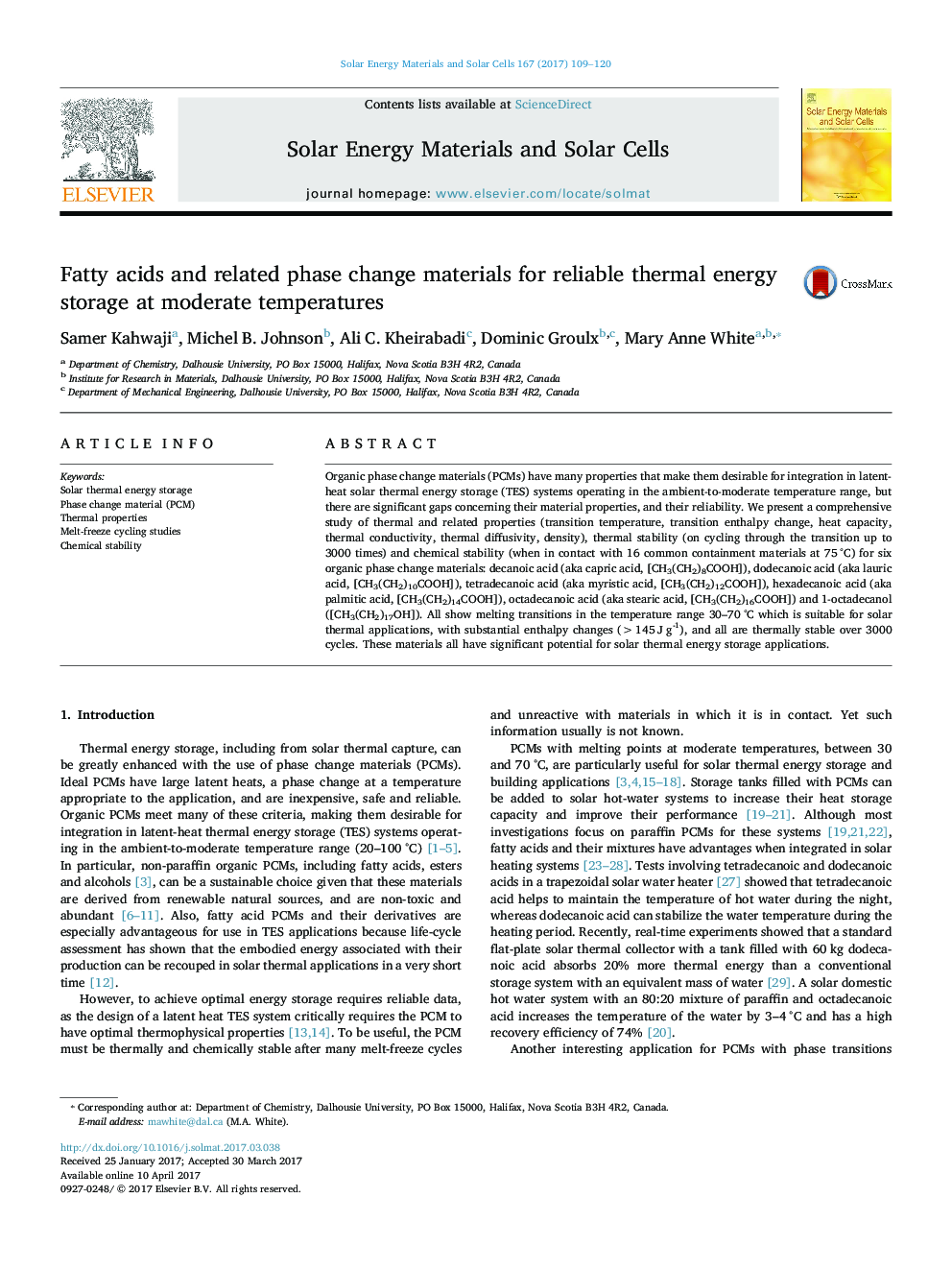| Article ID | Journal | Published Year | Pages | File Type |
|---|---|---|---|---|
| 6457266 | Solar Energy Materials and Solar Cells | 2017 | 12 Pages |
â¢Reliable thermal energy storage materials.â¢Moderate temperature range (30-70 °C), suitable for solar thermal applications.â¢Comprehensive thermophysical properties of phase change materials (PCMs).â¢PCMs thermally stable over 3000 cycles.â¢Chemical compatibility results for 6 PCMs with 16 different containment materials.
Organic phase change materials (PCMs) have many properties that make them desirable for integration in latent-heat solar thermal energy storage (TES) systems operating in the ambient-to-moderate temperature range, but there are significant gaps concerning their material properties, and their reliability. We present a comprehensive study of thermal and related properties (transition temperature, transition enthalpy change, heat capacity, thermal conductivity, thermal diffusivity, density), thermal stability (on cycling through the transition up to 3000 times) and chemical stability (when in contact with 16 common containment materials at 75 °C) for six organic phase change materials: decanoic acid (aka capric acid, [CH3(CH2)8COOH]), dodecanoic acid (aka lauric acid, [CH3(CH2)10COOH]), tetradecanoic acid (aka myristic acid, [CH3(CH2)12COOH]), hexadecanoic acid (aka palmitic acid, [CH3(CH2)14COOH]), octadecanoic acid (aka stearic acid, [CH3(CH2)16COOH]) and 1-octadecanol ([CH3(CH2)17OH]). All show melting transitions in the temperature range 30-70 °C which is suitable for solar thermal applications, with substantial enthalpy changes (>145 J g-1), and all are thermally stable over 3000 cycles. These materials all have significant potential for solar thermal energy storage applications.
